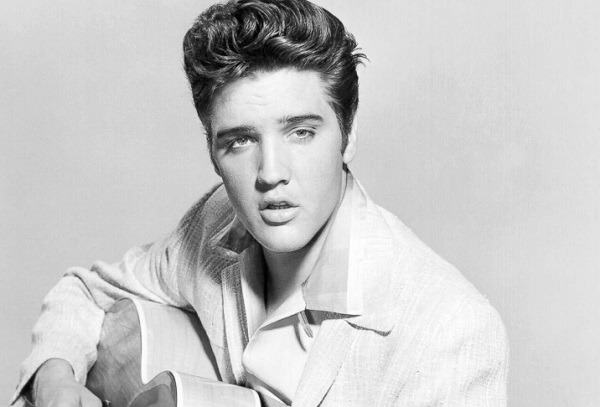Did Elvis Die of Constipation
Elvis Presley’s enigmatic life and tragic demise persist as a compelling narrative that transcends time—an icon whose influence echoes through the corridors of music history. The shockwaves of his passing in 1977 reverberated far beyond the realm of entertainment, signaling the end of an era characterized by his unrivaled impact on music and culture. While his performances and records etched him into the pantheon of musical legends, the layers of Elvis’s life reveal a complex tale—one that intertwines fame, adulation, and the isolating pressures of a public persona. Beyond the spotlight’s glare and the rhythm of his chart-topping hits, Elvis’s journey embodies both the soaring highs and the darker undercurrents that underscored his life—a tale steeped in both mystique and stark reality.
Elvis Presley’s Demise: The End of an Era
Elvis’s passing in 1977 marked not just the loss of a music legend but the conclusion of an era characterized by his unparalleled influence on music and culture. His impact was seismic, redefining the landscape of popular music and leaving an indelible imprint on the collective consciousness of generations. The news of his death sent shockwaves across the globe, prompting an outpouring of grief from millions of fans who had idolized him, demonstrating the unparalleled connection he shared with his audience.
The Man Behind the Legend: Personal Struggles and Isolation
Beyond the dazzling performances and chart-topping hits, Elvis was a man grappling with the isolating pressures of fame. Despite being surrounded by adoring fans, he faced an intense loneliness, isolated by the demands of his iconic status. The weight of expectations, the constant media scrutiny, and the absence of privacy took a toll on his mental and physical health. This isolation bred an environment where coping mechanisms, including the use of prescription drugs, became a refuge, albeit a destructive one.
Legacy and Cultural Impact
Elvis Presley’s legacy extended far beyond his music. He represented a cultural revolution, challenging societal norms and inspiring a generation. However, his tragic demise shed light on the darker aspects of fame. The stark contrast between the public image of an icon and the private struggles he endured highlighted the human cost behind the glitz and glamour of stardom. His legacy, therefore, serves as a cautionary tale, prompting introspection about the price of fame and the need for holistic care for individuals in the spotlight.

The Dark Side of Fame: Lessons Learned
Elvis’s life and death underscored the complex relationship between celebrity status, mental health, and addiction. His struggles brought to the forefront the need for comprehensive support systems and mental health awareness in the entertainment industry. It prompted discussions about ethical healthcare practices, the responsibilities of caregivers in managing the health of public figures, and the dangers of enabling addiction to protect a celebrity’s public image.
Did Elvis Die of Constipation?
Elvis Presley’s official cause of death, as stated on his death certificate, was attributed to a heart attack. However, there were indications that he grappled with severe and chronic constipation, as revealed by pathologists Dr. Eric Muirhead and Dr. Noel Florredo. During a post-mortem examination, these medical professionals discovered evidence pointing to the presence of this gastrointestinal issue. This finding added another layer to the complexities of Elvis’s health condition, shedding light on potential underlying factors that might have contributed to his overall health decline, despite the heart attack being the recorded cause of his untimely demise, as reported by PBS.
Healthcare Practices and Addiction in the Entertainment Industry
The tragic narrative of Elvis Presley’s decline sparked conversations about healthcare practices within the entertainment industry. It raised pertinent questions about the ethical responsibilities of physicians, the pressures of managing the health of high-profile individuals, and the challenges of balancing medical care with the demands of fame. The case of Elvis continues to serve as a touchstone for examining the ethical dilemmas inherent in providing healthcare to celebrities.
Continued Reverberations in Popular Culture
Decades after his passing, the echoes of Elvis’s story reverberate in the struggles of contemporary artists. The ongoing narrative of addiction, mental health challenges, and the demanding nature of fame persists, underscoring the importance of robust support systems, destigmatization of mental health issues, and ethical healthcare practices within the entertainment industry. Elvis’s legacy acts as a constant reminder of the need for holistic well-being amidst the pressures of fame.
Conclusion
Elvis Presley’s life and death form a complex tapestry—a legacy encompassing artistic brilliance, cultural revolution, and personal tragedy. His story serves as a poignant reminder of the multifaceted nature of fame, the complexities of mental health in the spotlight, and the far-reaching consequences of unchecked addiction. Beyond his music, Elvis’s enduring legacy prompts ongoing reflection on the intricate dynamics of fame and the essential need for holistic well-being in the world of entertainment.